Overview
Bachelor of Pharmacy (B.Pharm) at National Model College for Advanced Learning (NMCAL), Kathmandu
The Bachelor of Pharmacy (B.Pharm) at National Model College for Advanced Learning NMCAL, Kathmandu runs under Tribhuvan University’s Institute of Medicine (TU–IOM) and follows national standards for pharmacy education in Nepal. Students enter through the Medical Education Commission (MEC) entrance route and study a four-year program recognized by the Nepal Pharmacy Council.
Introduction
NMCAL is listed by TU–IOM as an affiliated college for the B.Pharm program and operates within the NIST Higher Education campus in Lainchaur, Kathmandu. The program builds scientific understanding of medicines and prepares students for safe, rational medication use in health services and pharmaceutical settings. The college shares academic routines and updates through the NIST platform, helping students follow exam forms, schedules, and project timelines.
Highlights
-
Affiliation: Tribhuvan University (Institute of Medicine) — B.Pharm at NMCAL.
-
Recognition: Listed under Nepal Pharmacy Council’s bachelor-level programs (TU).
-
Program length: Four academic years under TU–IOM.
-
Location for academic services: NIST Higher Education, Lainchaur, Kathmandu. (NIST Higher Education)
-
Admission route: MEC bachelor-level entrance (MECEE-BL) and matching.
-
Exam routines and notices: Published by IOM Exam Section.
Curriculum Details
The four-year structure integrates pharmaceutical sciences with patient-focused practice. Students progress from foundations (physical pharmacy, pharmaceutics, human physiology, basic medicinal chemistry) to applied areas (pharmacology, biopharmaceutics and pharmacokinetics, pharmaceutical analysis and quality, pharmacy practice, pharmacognosy, industrial pharmacy, and pharmacy law/ethics).
Year-wise practicals and seminars attach to theory so you practice what you learn. TU–IOM publishes program references and exam notices that confirm the four-year scope and assessment cycles.
Course examples (indicative under TU–IOM)
-
Pharmaceutics: dosage forms, preformulation, and manufacturing basics
-
Pharmacology: mechanism of action, therapeutic use, adverse effects
-
Pharmaceutical Analysis and Quality: assays, validation concepts, GMP awareness
-
Biopharmaceutics and Pharmacokinetics: absorption, distribution, metabolism, elimination; clinical relevance
-
Pharmacognosy/Phytochemistry: medicinal plants, extraction, quality markers
-
Pharmacy Practice: dispensing, counselling, drug information, documentation
-
Pharmaceutical Jurisprudence and Policy: national legal framework, pharmacy standards
Note: Detailed weekly syllabi and internal assessment breakdowns are delivered by the campus as per TU–IOM notifications and the NMCAL/NIST academic calendar.
Objectives
-
Build a strong scientific base for safe, effective use of medicines in clinical and community settings.
-
Develop careful lab habits for formulation, analysis, and quality checks.
-
Strengthen communication for team-based care and patient counselling.
-
Grow professional judgement aligned with national policy, pharmacy standards, and ethics.
Scope
Graduates work across hospital pharmacy, community practice, pharmaceutical manufacturing, quality control/assurance, regulatory and supply systems, research assistance, and health information roles.
Recognition and exam routines shared by IOM and the NIST platform show regular cycles of student presentations, practicals, and thesis abstract sharing that support this pathway.
Learning Outcomes
By graduation, students are expected to:
-
Explain how medicines act, interact, and are handled by the body in real cases.
-
Prepare and evaluate dosage forms with attention to stability and patient safety.
-
Dispense and counsel responsibly, including documentation and referral when required.
-
Read and summarize research papers for practical decision-making.
-
Follow Nepal’s pharmacy standards and contribute to safe medication use within the health system.
Skill Development Modules
-
Laboratory Technique: weighing, compounding, dissolution, assay methods, documentation.
-
Patient Communication: medication history taking, counselling scripts, adherence tools.
-
Drug Information: literature search, summary writing, citation practice.
-
Quality and Safety: standard operating procedures, error prevention, pharmacovigilance basics.
-
Research Practice: small projects, thesis abstract preparation, poster/oral presentation. Campus notices and IOM exam routines guide when these activities occur during the year.
Teaching Methodology
Faculty use short lectures for core theory, then move quickly to hands-on work and case discussion. Small groups run journal reviews and problem-solving sessions. Guided projects connect classroom learning to real questions in pharmacy practice or product quality.
Assessment includes theory papers, practical records, vivas, and periodic internal evaluations as per TU–IOM rules. IOM exam notices confirm timing and submission windows so you can plan study blocks and lab hours without confusion.
Admission Requirements
Entrance route
All bachelor-level pharmacy admissions run through MEC’s MECEE-BL portal. Applicants create an account, review the eligibility notice, pay the fee, and sit for the entrance exam. After results, the MEC matching process allocates scholarship and fee-paying seats by merit and preference.
Eligibility
Applicants usually need +2 Science (Biology) or an equivalent qualification that meets TU–IOM and MEC thresholds for the current session. Holders of a Diploma in Pharmacy recognized by TU–IOM also qualify through the MEC process when available in the cycle. Always read the latest official notice before applying.
College admission formalities
After MEC matching, selected candidates complete NMCAL registration, document verification, and orientation. The campus/NIST channels share routines, exam forms, and practical schedules. (NIST Higher Education)
Career Opportunities
-
Hospital and primary care pharmacy
-
Community pharmacy services
-
Pharmaceutical production and packaging
-
Quality control and quality assurance
-
Regulatory affairs and supply chain oversight
-
Research assistance and laboratory support
-
Health information and patient-education roles
These roles match Nepal’s recognized B.Pharm pathway under TU–IOM and NPC listing for NMCAL.
Scholarships and Financial Aid
MEC publishes scholarship categories, seat matrices, and matching rounds each year on its portal. MEC notices guide applicants on documentation, deadlines, and reporting. The campus and NIST website announce academic awards or recognitions at the institutional level. Check both portals during the admission window for accurate updates.
Why Choose This Course?
-
Clear TU–IOM affiliation and official listing for NMCAL’s B.Pharm.
-
National recognition by the Nepal Pharmacy Council for the TU stream that includes NMCAL.
-
Structured four-year plan under IOM with published exam notices and routines.
-
Campus updates through NIST, helping you track routines, project weeks, and thesis sharing. (NIST Higher Education)
Conclusion
Students who want a TU-recognized pharmacy degree in Kathmandu can find a clear, verifiable route at NMCAL: IOM affiliation, MEC entrance and matching, and a four-year study plan backed by national standards. The campus connects day-to-day learning with Nepal’s medicines framework so you study science and apply it responsibly in real settings.
FAQ
Is NMCAL officially linked to TU–IOM for B.Pharm?
Yes. TU–IOM lists National Model College for Advanced Learning as an affiliated college for B.Pharm.
How long is the B.Pharm program?
Four academic years under TU–IOM.
How do I apply for admission?
Use the MEC MECEE-BL portal for entrance, results, and matching. Follow the portal instructions and current notices.
Is the program recognized by the Nepal Pharmacy Council?
Yes. The council’s bachelor list includes National Model College of Advance(d) Learning under Tribhuvan University.
Where do I find exam forms and routines?
IOM’s Exam Section posts notices and routines for B.Pharm each cycle.
Where is the campus academic hub located?
NIST Higher Education manages academic services at Lainchaur, Kathmandu, and hosts updates for NMCAL. (NIST Higher Education)
What kinds of roles do graduates take up?
Typical roles include hospital and community pharmacy, production, quality, regulatory support, and research assistance within Nepal’s health system.
How can I verify seat categories or scholarships for the current intake?
Check MEC’s “Seat Distribution” and related notices on the portal during the admission cycle.


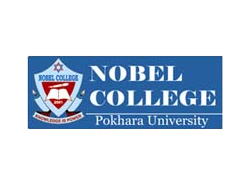
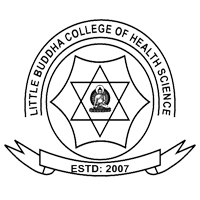
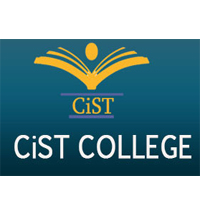
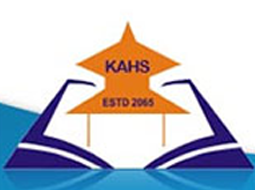
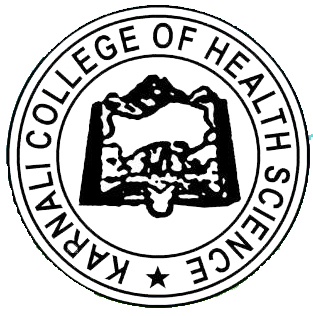
.png)















